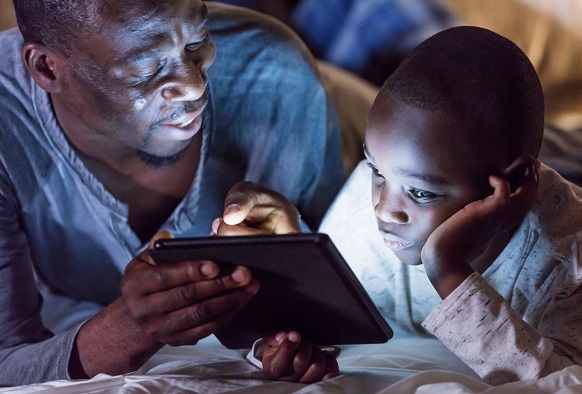Teaching children about consent and healthy relationships in the digital age
In this day and age, when information and communication are literally at our fingertips, it is more important than ever to teach children the importance of consent and to encourage them to develop healthy connections at a young age.
The digital realm has not only altered the method in which we engage with one another but has also presented brand new difficulties and complications.
It is imperative that children be educated about the concept of consent as well as the need of maintaining healthy relationships. This will enable them to navigate both the online and offline worlds with respect, empathy, and integrity.
Comprehending the Meaning of Consent
Consent is the foundation of any good relationship, regardless of whether it takes place online or in person. Children have a responsibility to learn that consent involves an exchange of feelings and understanding between all people involved in a given activity. It need to be well-informed, voluntary, and carried out with enthusiasm.
A person’s agreement is required prior to engaging in a variety of activities, including physical contact, the exchange of personal information, and participation in activities conducted online. In order to educate children about giving their consent:
Use terminology that is appropriate for the child’s age: begin with straightforward scenarios and language that the child can comprehend. When speaking to smaller children, you might use terms such as “Ask before you touch,” but older children are capable of understanding more complicated ideas.
Modeling agreement: Show that you have their permission by the way you communicate with them. Before you kiss or embrace someone, you should always get their permission first, and you should respect their decision.
Discuss the importance of digital consent: Drive home the point that you should always get permission before uploading images, videos, or publishing personal information on the internet. Encourage them to give it some thought before they hit the “send” button on that email.
Internet Security
At this point in time, protecting oneself while online is of the utmost importance. Children need to be informed of the possible dangers that come with using the internet, such as being the target of cyberbullying or harassment, or posting content that is unsuitable. This is how you can educate kids about staying safe when using the internet:
Free exchange of information: Establish an open setting in which children can feel at ease discussing their experiences, both positive and negative, gained from their time spent online.
Establish parameters: Establish limits governing the amount of time they can spend in front of a screen as well as the websites and apps they can utilize. Talk about the significance of privacy settings and the need of not disclosing personal information to unknown people.
Determine which adults can be trusted: Make sure that children are aware that they can come to you or another adult they can trust if they find themselves in an uncomfortable situation when using the internet.
Communication Based on Mutual Respect
It is vital to the development of good relationships to educate youngsters on the need of respectful communication. This includes interacting with people in person as well as online. The following are some crucial elements to cover:
Encourage children to be kind to one another and empathic in their online interactions, just as they would be in person. This is especially important for younger children.
Teach children how to voice diverse viewpoints without resorting to name calling or bullying and encourage them to engage in respectful discourse.
Etiquette online: Have a conversation about the significance of having good manners when using the internet, including refraining from spreading content that is offensive to others and not engaging in gossip about other people.
The Importance of Consent in Relationships
When kids get older, it’s essential to have conversations about giving and receiving consent in the context of dating and romantic relationships. They have to realize that giving consent is an ongoing process and that it is their right to establish limits within whatever relationship they are in.
Open lines of communication: Instruct them that they should never fail to communicate their boundaries and that they should always respect the boundaries that were established by their partners.
Explaining what coercion is and how it can be destructive in relationships, whether in person or through digital means, is an important step in gaining an understanding of this concept.
The significance of consent in close relationships: When your children reach the proper age, begin having conversations with them about the significance of consent in intimate relationships, putting particular emphasis on the idea that consent should always be enthusiastically and freely given.
The final word
It is more important than ever to educate youngsters about healthy relationships and the concept of consent in this age of digital technology.
They will be able to negotiate the intricacies of the online world with the support of these abilities, which will also develop respectful and compassionate behavior in their encounters with others in the real world.
Parents and teachers can enable children to create strong, healthy relationships and contribute to a safer, more respectful digital landscape for all of us by beginning these conversations with children at an early age.

